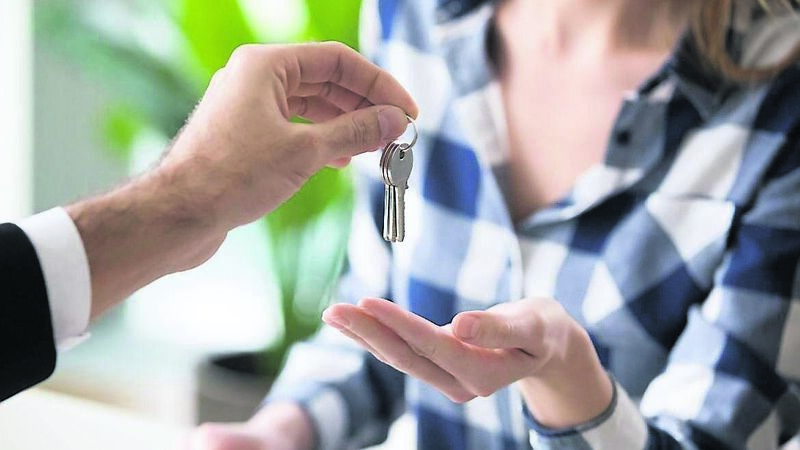How the Rent a Room Scheme works

The Rent a Room Scheme allows householders to rent out a room in their homes up to a maximum of €14,000 per annum tax free, subject to certain conditions being met. You do not have to own your own home to avail of this relief. Picture: Stock
WHAT is the rent a room scheme?
The Rent a Room Scheme allows householders to rent out a room in their homes up to a maximum of €14,000 per annum tax free, subject to certain conditions being met. You do not have to own your own home to avail of this relief.
To qualify for Rent-a-Room Relief, the following conditions must be met:
- The gross income from the rent must not be above the exemption limit €14,000 per year
- There must be a minimum continuous-letting period (with some exceptions)
- The room must be in a ‘qualifying residence’ this is your principal residence but you do not have to own the house
Up to last year, the Scheme was only available to taxpayers, but recent changes which are outlined below, have broadened the scope of the Scheme.
What has changed?
Last year, Minister for Social Protection, Heather Humphreys, brought in measures to allow social welfare recipients to access the Scheme in the same way as taxpayers.
This now means that if you rent out a room in your home for up to €14,000 per annum, you will not see your means tested social welfare payment affected. In addition, you are still entitled to claim Fuel Allowance and the Household Benefits Package, even if you have availed of this Scheme.
This has now been also extended to include the Living Alone Allowance, currently worth €22 per week.
For example, if you are a widow or widower living on your own, having someone else in the house will not see you lose this entitlement.
Last December, in the Dail, I asked Minister for Further and Higher Education, Research, Innovation and Science, Simon Harris to provide an update on a proposal for the inclusion of a provision under the Scheme to allow pensioners, who are medical card holders, to be allowed to access same, without the risk of losing their entitlement. Many pensioners were very concerned that if they let out a room in their homes, it might result in the loss of their medical card.
I am very pleased to learn that the Government has made the decision to take my proposals on board, which will enable many of our older citizens to avail of the Scheme, without fear of going over the income threshold for their medical cards.
In summary, what this means is that any income gained under the scheme up to the €14,000 limit will be ignored or ‘disregarded’ when determining medical card eligibility.
Currently, the income limit for eligibility for an over 70s medical card is €550 for a single person, €1,100 for a married couple per week.
As noted above, the income earned from renting out a room is tax free. However, it is important to point out that strict rules apply. The rent obtained cannot exceed €14,000.
So for a taxpayer, if your rental income is €14,001, then the whole amount is subject to tax, PRSI and USC.
If you are in receipt of a social welfare payment, and go over the €14,000 limit, this will count as ‘means’ for the purpose of means tested social welfare entitlements.
Type of accommodation
You can let out a flat or a room in your house. You can also let out a room or flat that is attached to your house. The Scheme does not apply to short term lets, so Airbnb would be excluded. However, there is an exception for ‘dig style’ accommodation, e.g. if you let your room to a student from Sunday to Friday, then this is covered. Some other exceptions apply (see www.revenue.ie). As noted above, from May 1, the Scheme will be accessible to Local Authority Tenants.
The Scheme does not apply if you let a room to your spouse, civil partner, son or daughter. However, there is nothing preventing you from renting a room to a niece or nephew. The Scheme gives householders an opportunity to earn extra income, while also increasing the availability of accommodation on offer. The Scheme also assists mortgage holders, giving them an opportunity to increase their income.
I was very pleased to see the extension of the Scheme to social welfare recipients, including pensioners, which was introduced by Minister Humphreys last year.
Conclusion
The Government acknowledges that we have a housing shortage and have an ambitious programme to increase the supply of accommodation, through the Housing For All policy. Government has taken a raft of measures to address the housing crisis and made significant progress in achieving this goal. However, it has faced a number of significant challenges in pursuit of this aim.
Our population has increased due to many factors, including the influx of refugees from the war in Ukraine, which in turn has put added pressure on our housing system.
Census figures show that between 2016 and 2022 our population increased by 361,671. Furthermore, we are also experiencing a chronic shortage of builders and allied trades, as well as supply chain issues which have impeded progress in achieving housing targets.
However, there is good news. About 30,000 homes were built last year, an increase of 45.2% from 2021.
Other changes which are of significance include the reform of the Fair Deal Scheme, which will also make it more financially attractive to let out a property, where the homeowner has moved to a nursing home.







 App?
App?




